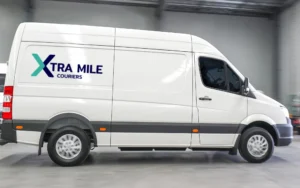At Xtra Mile Couriers, we’re proud to be part of an industry with a fascinating history. The courier service industry has been around for centuries, evolving alongside human progress. This article will take you on a journey through time, exploring how the courier industry started, adapted, and flourished. By understanding this history, you’ll see why reliable courier services, like the ones we provide, are vital in today’s fast-paced world.
The beginnings of communication and delivery
Long before couriers became formal businesses, people relied on messengers. Early civilisations like the Egyptians and Mesopotamians employed runners to deliver messages. They carried information between rulers, cities, or even across empires. These messengers risked harsh terrains and bandits to ensure safe delivery. Communication was slow, but these services were crucial for governance and trade. As written language developed, delivering important messages became more structured, laying the groundwork for modern couriers.
Ancient courier systems across the world
Ancient societies formalised courier services. The Persian Empire, for instance, created a postal system called the Chapar Khaneh. Messengers on horseback carried mail between relay stations. In China, the Han Dynasty used a similar network to ensure swift deliveries across its vast territories. Meanwhile, the Roman Empire built roads to support their courier system. Soldiers or trained messengers transported military orders, legal documents, and news. These organised networks marked the first steps towards professional courier services.

The Middle Ages and the rise of trade
During the Middle Ages, trade expanded across Europe, and courier services grew to meet demand. Merchants needed secure ways to send goods, contracts, and letters. Guilds and trading companies often hired private couriers for these tasks. In England, the Royal Mail began in the 1500s as a courier system for the monarchy. Trusted couriers delivered royal correspondence using horses and carriages. The expansion of trade routes during this period brought new opportunities for couriers to connect people and businesses.
The role of couriers in early modern times
The 17th and 18th centuries saw significant changes in courier services. Governments across Europe established state-run postal systems. In England, the Royal Mail opened to the public in 1635, allowing individuals to send letters securely. Technology also improved, with better roads and faster horses enabling quicker deliveries. Couriers played a key role in the Industrial Revolution, transporting documents and blueprints between factories. Reliable delivery systems supported the growth of businesses and urbanisation.
The industrial revolution’s impact on courier services
The industrial revolution transformed the courier industry. Steam engines powered trains and ships, speeding up delivery times. Railways connected towns and cities, allowing couriers to transport goods and letters over long distances efficiently. As cities grew, demand for courier services increased. Urban couriers used horse-drawn carts to navigate busy streets. Meanwhile, international trade flourished, and couriers started using steamships to deliver packages across oceans. This era marked the start of global courier networks.
The invention of motorised transport: What is the history of the courier service industry?
The invention of motor vehicles in the late 19th and early 20th centuries revolutionised courier services. Couriers began using vans, motorcycles, and cars to make faster deliveries. Roads improved, enabling better connectivity between towns and cities. In London, motorcycle couriers became popular for their speed and agility in navigating traffic. The motor age ushered in a new level of convenience, paving the way for modern-day express deliveries.
The rise of air courier services
Air travel changed the courier industry forever. During the mid-20th century, couriers started using aeroplanes for long-distance deliveries. This innovation reduced delivery times drastically. Businesses could send urgent parcels across continents in hours instead of weeks. Air courier services supported global trade and communication like never before. Major courier companies emerged, specialising in international express services. The ability to connect people worldwide became a cornerstone of the industry.

The digital era and modern courier services
The digital age brought immense changes to courier services. Email and online communication reduced the need for letter deliveries. However, online shopping created a massive demand for parcel deliveries. Couriers adapted by specialising in same-day and next-day delivery services. Tracking technology gave customers more control, allowing them to monitor their parcels in real time. The courier industry evolved to meet the expectations of a digital-first world, balancing speed with convenience.
Innovations shaping the future of courier services
Today, the courier industry embraces cutting-edge technology to stay competitive. Drones and autonomous vehicles are tested for quicker, eco-friendly deliveries. Artificial intelligence helps optimise delivery routes, reducing delays and fuel consumption. Sustainable packaging and electric vehicles show the industry’s commitment to the environment. These innovations ensure that couriers remain a vital part of modern life, supporting businesses and individuals alike.
Conclusion: What is the history of the courier service industry?
The history of the courier service industry is a story of adaptation, progress, and resilience. From ancient messengers to modern drones, couriers have played a critical role in connecting people and businesses. At Xtra Mile Couriers, we’re proud to continue this tradition by offering fast, reliable, and innovative services tailored to your needs. Whether it’s delivering important documents or parcels, we’re here to help you go the extra mile.